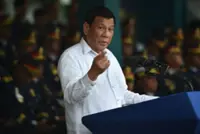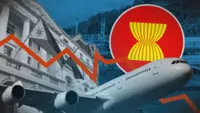PRESIDENT Ferdinand Marcos Jr arrived in Japan for a visit that is expected to pave the way for closer security ties with Tokyo, as Manila increasingly sides with the United States in its regional tussle with China.
Marcos and Japanese Prime Minister Fumio Kishida are expected to deepen cooperation in humanitarian assistance and disaster relief, a possible precursor to establishing the legal framework that would allow Japanese forces to deploy to the Philippines more easily.





